Navigating Vermont Taxes: A Homeowner’s Guide
Oh, the joys of homeownership in Vermont! From the breathtaking views of the Green Mountains to the serene life in its quaint towns, Vermont is a slice of picturesque Americana. But before anyone gets lost in that dreamy New England charm, let’s talk something a tad less exciting but just as important: Vermont taxes for homeowners. Because, let’s face it, nothing brings you back down to earth quite like tax season.
You’re about to dive into an article that’ll break down the nuances of property taxes, throw in a dash of sales tax implications, compare ’em to the neighbors, and even discuss some unique Vermont taxes. It’s tax talk made as painless as possible, so stick around—you might just learn something that’ll save you a few bucks.
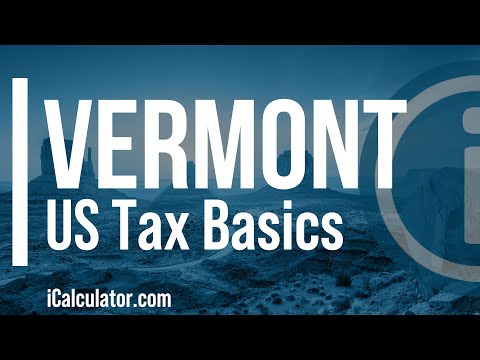
The Structure of Vermont Property Taxes
Ever wondered how Vermont determines that slice of your wallet reserved for the property taxes? Well, it’s a journey through assessments, tax rates, and yes, even an appeals process for those who feel that their bill is off-kilter.
Biennial Report of the Commissioner of Taxes of the State of Vermont
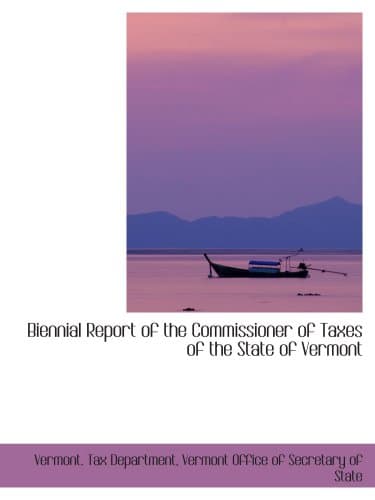
$25.95
The “Biennial Report of the Commissioner of Taxes of the State of Vermont” is an authoritative document that provides a comprehensive overview of Vermont’s tax system and its administration over a two-year period. This extensive report is crafted by expert analysts and is essential for policymakers, economists, and stakeholders interested in the intricacies of state taxation and fiscal management. It includes detailed statistical data on tax revenue, analysis of tax policy changes, and evaluations of the tax code’s impact on individuals and businesses alike. By meticulously chronicling tax collection trends and emerging issues, the report serves as a critical tool for transparency and accountability in state governance.
Understanding the fiscal health and taxation strategies employed by the state, this biennial report offers an in-depth look at the effectiveness of tax regulations and their contribution to Vermont’s economic stability. It presents a clear breakdown of various tax categories, such as income, sales, property, and corporate taxes, illustrating how these streams support the state’s budget. Stakeholders can discern the balance between revenue collection and the promotion of a favorable business climate, making it a valuable source of information for decision-making. Furthermore, the report outlines the efforts and initiatives taken by the Commissioner of Taxes to streamline tax administration and combat tax evasion and fraud.
As a policy document, the “Biennial Report of the Commissioner of Taxes of the State of Vermont” plays a pivotal role in future legislative deliberations and serves as a foundation for proposing modifications to tax laws. The report’s historical tax data comparison across fiscal years aids in identifying economic trends and predicting future revenue patterns. It also emphasizes the challenges faced by the tax department, the resolutions implemented, and the prospective goals, thus offering a forward-looking perspective on tax policy. For anyone looking to grasp the financial mechanics of the state or monitoring the efficiency of tax collection and its implications, this report is an indispensable resource.
| Tax Type | Details | Rates and Brackets for 2022 Tax Year |
|---|---|---|
| Vermont Income Tax | Imposed on Vermont taxable income after deductions and allowances. | |
| Sales Tax | Vermont has a 6.00% state sales tax. Essential items are exempt, such as food and prescription drugs. | |
| Property Tax | Vermont’s property taxes are relatively high compared to other states. | Tax rates vary by locality—median property tax rate is $1,924 per $100,000 of assessed home value. |
| Social Security Income Tax | Taxes Social Security benefits for some filers based on income level. | Taxed following federal rules for filers with income above a certain threshold. |
| Estate Tax | Vermont imposes an estate tax on decedent estates exceeding a certain value. | |
| Business Tax Climate Index | An assessment of Vermont’s overall tax climate for businesses. | Vermont ranks 44th on the 2023 State Business Tax Climate Index. |
Vermont Sales Tax Implications for Homeowners
You might not know this, but even something like choosing the perfect shampoo bar for your Vermont abode could carry tax implications. No, seriously!

Comparing Vermont Taxes to Neighboring States
It might be tempting to start envying your neighbors once you take a look at the tax grass on the other side of the state line:
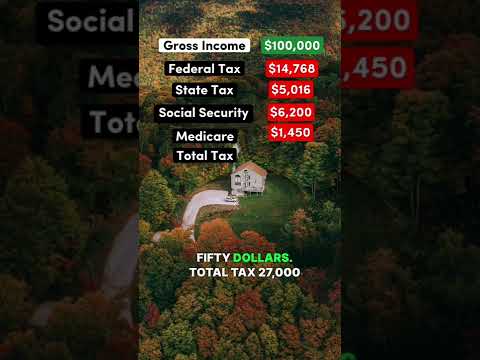
The Role of Education Funding in Vermont Taxes
If there’s one thing that’s gonna give your property taxes a bit of a hike, it’s education funding. It’s a big slice of the state’s tax pie, but here’s the twist: there’s an income sensitivity provision that might soften the blow for you.
Biennial Report Of The Commissioner Of Taxes
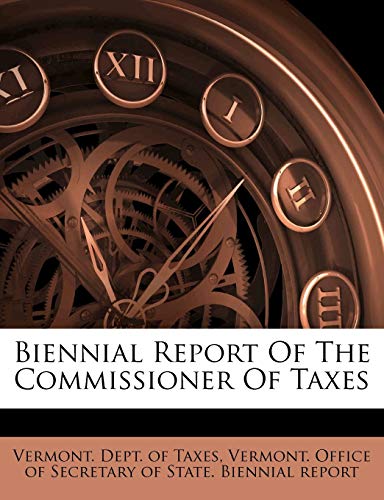
$32.75
The “Biennial Report of the Commissioner of Taxes” is a comprehensive document that provides insights into the workings, accomplishments, and challenges faced by the tax authority over a two-year period. Aimed primarily at policymakers, tax professionals, and economists, this report delivers a detailed analysis of tax revenue streams, enforcement activities, and policy changes. Statistics on tax collections, audits, compliance rates, and enforcement actions are meticulously compiled to inform readers about the effectiveness of current tax policies and the efficiency of the tax administration.
This edition of the report incorporates a range of topics including the impact of new legislation on revenue, the progression of digital initiatives in tax administration, and the evolution of taxpayer services. It evaluates the success of newly implemented programs and offers a forecast for future revenue patterns in light of economic projections and potential legislative developments. Furthermore, it includes a segment on taxpayer education efforts and the ways in which the tax authority is striving to simplify the process of tax compliance for the public.
Crucially, the “Biennial Report of the Commissioner of Taxes” also addresses the strategic plans put forth for the upcoming years, discussing objectives aimed at enhancing the effectiveness and efficiency of tax collection. It outlines the fiscal challenges that lie ahead while emphasizing the commitment of the tax authority to continuous improvement and integrity in serving the public. For stakeholders interested in government fiscal health, tax policy, and public administration, this document is an essential and authoritative source of information on the nationâs tax system.
Homestead Declaration and Its Impact on Vermont Taxes
Played the real estate game right and nabbed yourself a Vermont homestead? Kudos! But now it’s time to get serious about declaring it:

Potential Tax Credits for Vermont Homeowners
Imagine reducing your tax bill and having more to splurge on Penzeys Spices for your kitchen? Vermont does offer tax credits and deductions that can make a difference:
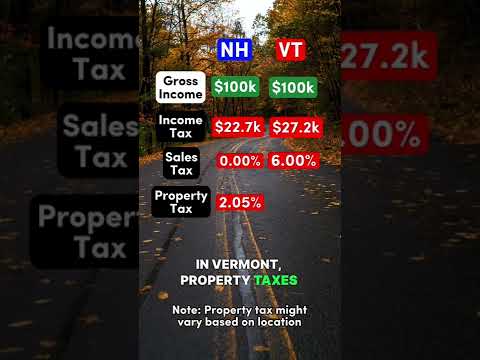
Navigating Tax Changes and Updates for 2024
Change is the only constant, they say, and tax laws are no exception:
VERMONT LAWS TITLE TAXATION AND FINANCE EDITION WEST HARTFORD LEGAL PUBLISHING
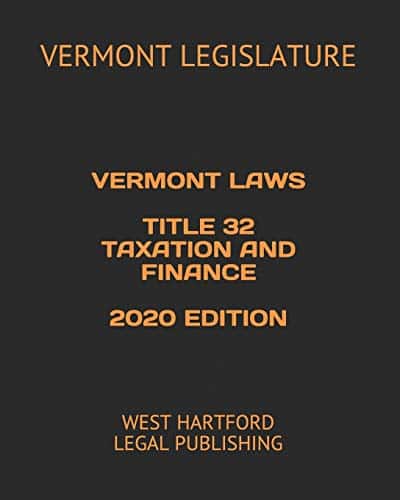
$27.00
The Vermont Laws Title Taxation and Finance Edition by West Hartford Legal Publishing is an authoritative resource catering to the needs of attorneys, accountants, government officials, and individuals navigating the complex landscape of Vermont’s tax code and financial regulations. This comprehensive tome offers an up-to-date compilation of statutes and laws that govern state taxation policies, public finance, property assessment, and revenue allocation within the boundaries of Vermont. Clear and concise, its structure is designed for easy reference, enabling professionals to quickly find pertinent sections relevant to specific legal and financial inquiries or cases.
Every edition is meticulously updated to ensure that users have access to the most current information, reflecting the latest amendments, rulings, and state-specific tax law changes. The text is enriched with annotations, cross-references, and explanatory notes that enhance the user’s understanding of how each law applies in practical contexts, helping them to navigate the intricate details of Vermont’s tax system with greater confidence. This edition includes sections devoted to sales and use tax, income tax, estate planning, and educational insights on fiscal policy-making and the legislative process governing Vermont’s public finances.
West Hartford Legal Publishing is known for its dedication to precision and clarity, making the Vermont Laws Title Taxation and Finance Edition an indispensable tool for those who demand a rigorous and detailed approach to Vermont’s legal framework. Moreover, the durable hardcover format ensures longevity through frequent use in professional settings or personal study. Legislators, policy makers, educators, and citizens keen on understanding and applying Vermont tax laws will find this volume to be a critical addition to their legal library, assuring them a reliable guide through the layers of statutes that shape the financial landscape of the state.
Unique Vermont Taxes and How They Affect You
Vermont has a few tax curveballs that you won’t find in every state—like the land gains tax and property transfer tax. These can color your perspective on buying and selling property in this otherwise tranquil state:

Best Practices for Vermont Homeowners During Tax Season
Now, let’s polish those taxes until they shine. Tax season doesn’t have to be the boogeyman under your bed if you know how to handle it:
Personal Insights: Vermont Homeowners Share Their Tax Experiences
Nothing like a good story to put tax talk into perspective. Real Vermont homeowners have been around the block and have juicy insights into the mix:
Planning Ahead: Tax Strategies for Potential Homeowners in Vermont
Thinking of putting down roots in Vermont? Well, you savvy future homeowner, bravo for doing some recon first:
Unveiling the True Cost of Homeownership in Vermont
Here’s the deal: Vermont’s a beauty, but the cost of living can sometimes sting a little. Don’t just consider the listing price of that charming cottage—there’s a whole tax picture to paint:
Final Reflections: Mastering Vermont Taxes for Homeownership
In the grand scheme, Vermont taxes for homeowners can feel a little daunting, but like a well-built stone wall, they’re manageable with some effort and knowledge:
Now that you’re armed with this hefty guide, you’re more than ready to tackle Vermont taxes. Go show them who’s boss!
Vermont Trivia: Taxes with a Twist of Maple
Got the Property Tax Blues? Tap Into the Facts!
Hey there, Vermont homeowners! Let’s dish out some delightful tidbits on those taxes that may have you both scratching your head and feeling a bit of Green Mountain pride.
The Skinny on Property Taxes: It’s Not All Maple Syrup and Fall Foliage
First off, did y’all know that Vermont’s property taxes are as notorious as its winters are long? In fact, this state often lands in the top tier when it comes to the amount of property tax paid. But before you start packing your bags to head south, consider this: Vermont’s property taxes help to fund some truly top-notch schools—making sure those young minds are as sharp as a cheddar cheese from Cabot.
Education Funding: A Sweet Slice of Your Tax Pie
Speaking of education, you might be surprised to learn that a whopper of your property tax dollars go right back into making Vermont’s education system one of the most enviable around. They say you can’t put a price on a good education, but in Vermont, they kinda do—and it’s baked right into your property tax. A silver lining, though, is that well-funded schools might just boost your property’s value over time—now that’s what I call smart investing!
Homestead Declaration: Find Your Tax Haven
Hold on to your hats, because the homestead declaration in Vermont is like a life raft in a sea of tax confusion. By filing this nifty form, Vermonters can ensure they’re not paying an arm and a leg on taxes for the roof over their heads—provided it’s their primary residence. It’s kind of like telling the tax folks, “Hey, this isn’t just a house—it’s my home!” And voilà, your property tax rate might just take a nosedive.
Sales Tax: Smoother Than a Spoonful of Local Honey
Now, while you’re digesting the hefty meal of property taxes, here’s a tidbit to sweeten the pot: Vermont’s state sales tax is a pretty moderate 6%. And get this—groceries, clothing, and prescriptions are exempt! That means more cash in your pocket for stocking up on those locally-made treasures or, hey, maybe some extra syrup for Saturday’s pancakes.
The Income Sensitive Adjustment: Don’t Miss This Tax Break Breakfast
And here’s something to chew on with your morning granola—Vermont has an income sensitive adjustment which is kinda like sliding down a tax bracket rainbow. If you qualify, you could get a tax credit for property taxes based on your household income. So for those of you sweatin’ it out over high property tax rates, this could be your pot of gold.
Wrapping It Up with a Big Red Bow
So there you have it, folks—Vermont taxation in all its complex, quirky glory. Whether you’re dialing in your Homestead Declaration or pouring over your property tax bill, remember that in Vermont, those tax dollars are cultivating a community as vibrant as the fall foliage. Sure, the tax bite might be sharper than a winter wind, but hey, it’s all part of the rugged charm of the Green Mountain State, right?
Now, get out there and embrace your inner tax savvy Vermonter—and maybe celebrate getting through tax season with a maple creemee, on the house (well, not literally, but you deserve it)!
Vintage Vermont Tax You To Death T Shirt

$15.99
Embrace a bold statement with the Vintage Vermont Tax You To Death T-Shirt, a clever piece of wearable satire that will get heads turning. Crafted for those who appreciate a touch of humor about their financial gripes, this shirt features a timeless vintage look that fits perfectly into any casual wardrobe. The eye-catching graphic, printed with high-quality inks, showcases a classic, distressed design, embodying a retro aesthetic that’s both fashionable and filled with character. Made for the individual who enjoys a lighthearted jab at the Green Mountain State’s notorious tax reputation, it’s a conversation starter at any local gathering or out-of-state event.
Comfort is not sacrificed for style with this T-shirt; it’s made from soft, breathable cotton that ensures all-day wearability, no matter the season. Its durability is enhanced with double-stitched hems and a well-crafted neckline, ensuring it stands up to frequent washing and daily wear, without losing its unique appeal. Perfect for both men and women, the fit is unisex, a testament to its versatile, relaxed style that appeals to a wide audience. Whether lounging at home or taking on the town, the Vintage Vermont Tax You To Death T-Shirt promises comfort and a touch of irreverent charm.
This T-shirt isn’t just a piece of clothing; it’s a statement for those who wear their opinion on their sleeveâliterally. It makes an ideal gift for the politically minded, the fiscal conservative, or the collector of novelty tees with a pointed message. Coupled with its vintage charm, the T-shirt is a versatile item that can be paired with a range of outfits, from jeans and sneakers to layered under a flannel or jacket. Whether you’re a Vermont local with a sense of humor about your state’s tax laws or simply looking for a unique tee that sparks conversation, the Vintage Vermont Tax You To Death T-Shirt is a must-have addition to your collection.
Is VT a tax friendly state?
– Oh boy, if you’re looking for a tax haven, Vermont might not fit the bill. It’s not exactly the friendliest state when it comes to taxes, with a range of state-level taxation that can put a bit of a pinch on your wallet.
Is Vermont a high income tax state?
– Well, would you look at that, Vermont can indeed be a bit taxing on your income! They’ve got a graduated income tax system that might have those earning higher incomes feeling the pinch more than in some other states.
What are the taxes in Vermont?
– So, what’s the deal with taxes in Vermont, you ask? They’ve got a mixed bag: state income tax, sales tax, and property taxes are definitely a thing. Plus, you’ve got local levies to consider, so keep your piggy bank close!
Do citizens of Vermont pay a state income tax?
– You betcha, citizens of Vermont have to cough up state income tax. It’s a graduated system, so the more you earn, the more you’re chipping in.
Why are property taxes so high in Vermont?
– Gosh, the property taxes in Vermont are like that one friend who always orders the most expensive dish—pretty high! It’s often due to the state’s education funding model, which relies heavily on property taxes, so that’s where your money’s going.
What is not taxed in Vermont?
– Cutting through the tax maze, Vermont shines a light on your wallet by not taxing necessities like most groceries, prescription drugs, and clothing. So, at least there are a few breaks!
Is it cheaper to live in Vermont or Maine?
– Let’s crunch some numbers! It’s a tough call, but generally, Vermont comes with a steeper price tag for living costs than Maine. But hey, your mileage may vary depending on your lifestyle!
Does Vermont have car tax?
– Roll up to Vermont, and yep, they throw in a car tax. It’s called a registration fee and it’s based on the value of your car, so the newer and shinier it is, the more you’re likely to shell out.
Is Vermont a good place to live?
– Ah, the age-old question! Vermont can be a charmer with its natural beauty and quaint towns. Quality of life? Check! It’s peaceful and community-oriented, which resonates with plenty of folks. But, remember, it’s not just about the landscape—the cost of living and taxes might make you think twice.
What is a livable wage in Vermont?
– Now, talking dollars and sense, a livable wage in Vermont? It’s a bit of a moving target, but think north of $13 per hour, with some estimates suggesting closer to $15 or beyond, especially if you want some of those nice-to-have things in life.
Is it expensive to live in Vermont?
– Getting real here—yes, Vermont can be quite pricey. From heating bills that’ll make you sweat to housing costs that’ll have you double-checking your bank account, it’s not the cheapest date.
How much is $50,000 a year after taxes in Vermont?
– Okay, let’s break it down. If you’re making $50,000 a year in Vermont, Uncle Sam and his local cousin will be dipping into your pocket. After federal and state taxes, you’re probably looking at taking home somewhere in the mid-$30,000 range—but don’t quote me on that; it’s always a bit of a guesstimate.
What is the most tax friendly state to live in?
– Drumroll, please… the most tax-friendly state is often a tussle between states like Alaska, Wyoming, and Florida! These are your go-to places for low (or no!) state income tax, giving your wallet a bit of a breather.
Will Vermont stop taxing Social Security?
– You’re hitting me with a repeat, but here goes—Vermont currently taxes Social Security, and while there’s always chatter about change, nothing’s set in stone. As they say, don’t count your chickens before they hatch!
How much is 100k after taxes in Vermont?
– So, you’re curious about 100k in Vermont after taxes? You’re looking at a decent haircut to your paycheck, thanks to federal and state taxes. Depending on deductions and such, you might net somewhere in the $70,000 vicinity, but don’t take that to the bank.
Will Vermont stop taxing Social Security?
– Alright, we circled back—yup, Vermont’s still taxing Social Security. Gotta stay tuned to see if those tax tides turn though.
What is the most tax friendly state in the US?
– Looking for the most tax-friendly state? Say hello to states like Alaska, Florida, Nevada, South Dakota, Texas, Washington, and Wyoming. They’ll give your wallet a warm welcome with no state income tax.
What do taxes pay for in Vermont?
– What do your tax dollars do in Vermont? They get down to business funding schools, maintaining roads, and supporting public services. Basically, making sure things are smooth sailing, or at least trying to.
Is Vermont a good place to retire financially?
– Retiring in Vermont, financially speaking, might feel like skiing uphill sometimes, thanks to those high taxes and living costs. But if gorgeous scenery and community vibes are your jam, it might just be worth it for you!



